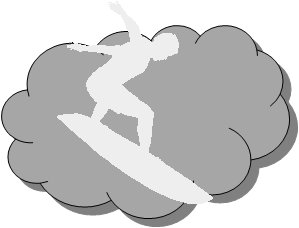
|
|

|
|
Teaching Assistants:Margareth Mushi, Mansi Babbar
Credit-hours: 3
Prerequisites: CSC501 (operating systems) and CSC570 (networking).
Knowledge acquired in the above courses is assumed. Knowledge of Linux LAMP basics, of basic networking concepts, of a high-level programming language, such as C, C++, or Java, of some HTML, and of some PHP and Perl is required for success in this coursse. If a student lacks that knowledge, this will need to be self-taught.
Time & Venue: 15:50-17:05 (Lectures & Lab hours) on Tuesday
and Thursday.
Lectures will be in 1021 in Engineering Building II
(EB2).
PLEASE SEE SCHEDULE FOR
SPECIFICS.
Computing will be required. Students must have an EOS/UNITY account and must know how to use e-mail and access internet via a World-Wide Web browser. Additional computing facilities will be provided through the Virtual Compuing Laboratory (VCL), and the EB2 and Oscar labs.
News and Lectures/Labs
Students are required to access the course
News page at least twice a week. The relevant pages are located at
http://davinci.csc.ncsu.edu/CC/
PoliciesViolations of academic integrity policies will be decended upon from great height, and will result in prosecution of the offenders.
1. History of Centralized and Distributed Computing
2. Cloud Computing principles, components, services and Virtualization
3. Types of Cloud Services and overview of some selected systems
* VCL
* Other clouds, including commercial clouds
4. Cloud resources
* Network and API
* Virtual and bare-metal computational resources
* Data-storage
5. Cloud Interfaces
6. Cloud Access: authentication, authorization and accounting
7. Cloud Provenance and meta-data
8. Cloud Reliability and fault-tolerance
9. Cloud Security, privacy, policy and compliance
10. Cloud Cloud federation, interoperability and standards
11. Cloud Economics
12. Advanced topics
* HPC in the Cloud
* Cloud brokering
* Open Stack
* Containers and Docker
This class CANNOT be audited, and CANNOT be taken on the pass/fail (credit only) basis. There will be a prerequisite knowledge test the first day of the class. It will count into class tests.
Homeworks are individual work (no collaboration, etc.), tests are individual work, projects are group work.
The course uses +/- grading. Homeworks are worth about 1/3 of the grade, tests (including in-class quizzes) are worth about 1/3 of the grade, and individual projects about 1/3 of the grade. These proportions may change depending on the grade curving (and students will be given explicit information about that via a grade calculator tool). There will be no final exam, however project summary presentations and individual team evaluations may take place during the "dead week" (see class schedule page for details).
Students will be required to fill in any gaps in the prerequisite knowledge on their own time.
All homeworks, assignments and reports will be submitted electronically. Exception are "attendance assignment" one-sheets that need to be submitted in person at the start of each class.
Students must attend all classes/labs unless explicitly informed otherwise by the instructor(s). All students also MUST access the NEWS page within 36 hours of a class-slot regardless of whether the class is given or not, or whether the class slot is used as lab-time.
Both, lecture/lab attendance and news access are required for attendance to count.
Tests/Exams are mandatory. There may be extra work assigned for the "dead week" (possibly including in-class presentatins). Final project submission will be during the "reading days". Please see schedule for details.
If there are any questions, issues, or complaints about homework and test grading, these need to be submitted/brought up with the Instructors, Project Coordinator or TA within two weeks of the time the work has officially been graded and returned to the class. After that, the grades are fixed.
All class announcements will be made via the News and Announcement and Schedule (deadlines, test-dates, project due date) web pages. YOU ARE REQUIRED TO VIEW BOTH PAGES at least TWICE a WEEK (once in-between the lecture/lab slots and within 36 hours of the last lecture/lab slot). It is recommended that you visit the NEWS page three times a week (e.g., Mon, Wed, Fri). This assures reasonable currency of the information "pull".
The course process will follow all relevant and appropriate N C State University academic regulations including those about academic integrity and those relevant to students with disabilities.
It is the responsibility of the student to inform the instructor(s). (in writing) about any relevant extraneous cirumstances (e.g., medical or other emergenices, disabilities, etc.).
Material for this course was developed in part through support from NSF grants 0910767 and 1330553, the U.S. Army Research Office (ARO) grant W911NF-08-1-0105 managed by NCSU Science of Security Initiative and Science of Security Lablet, IBM Share University Research and Fellowships program funding, and the Argonne Leadership Computing Facility at Argonne National Laboratory, which is supported by the Office of Science of the U.S. Department of Energy under contract DE-AC02-06CH11357.